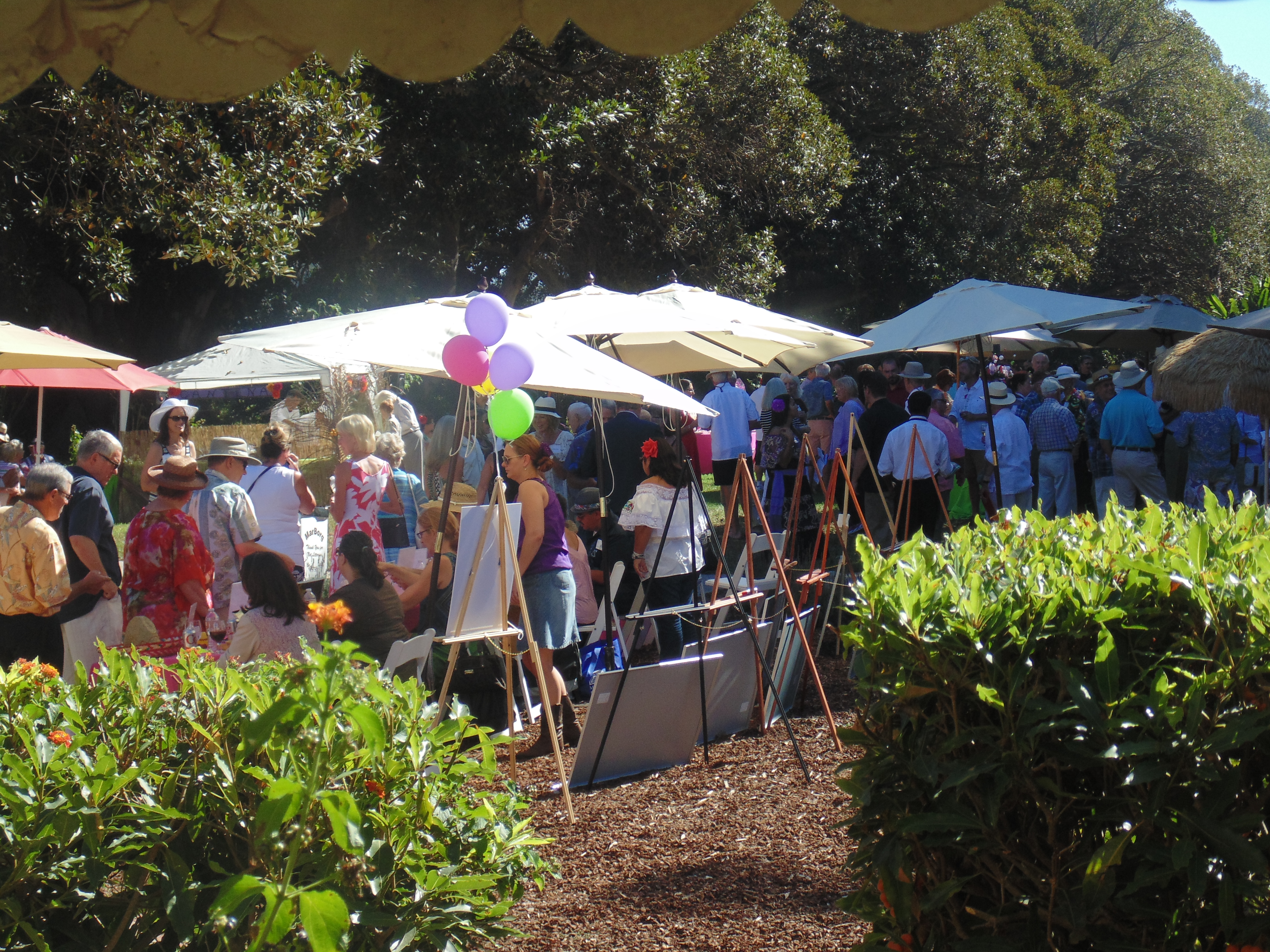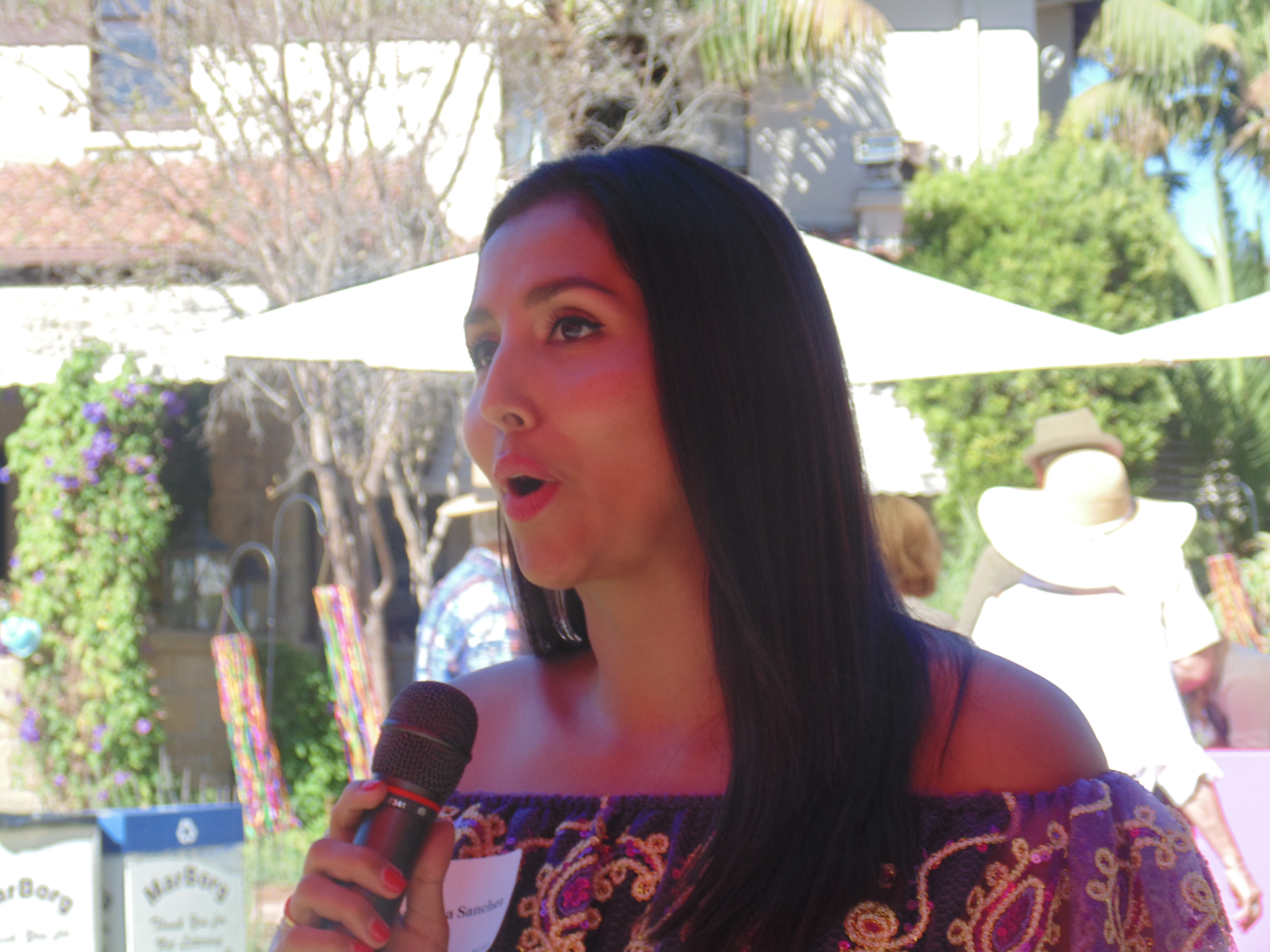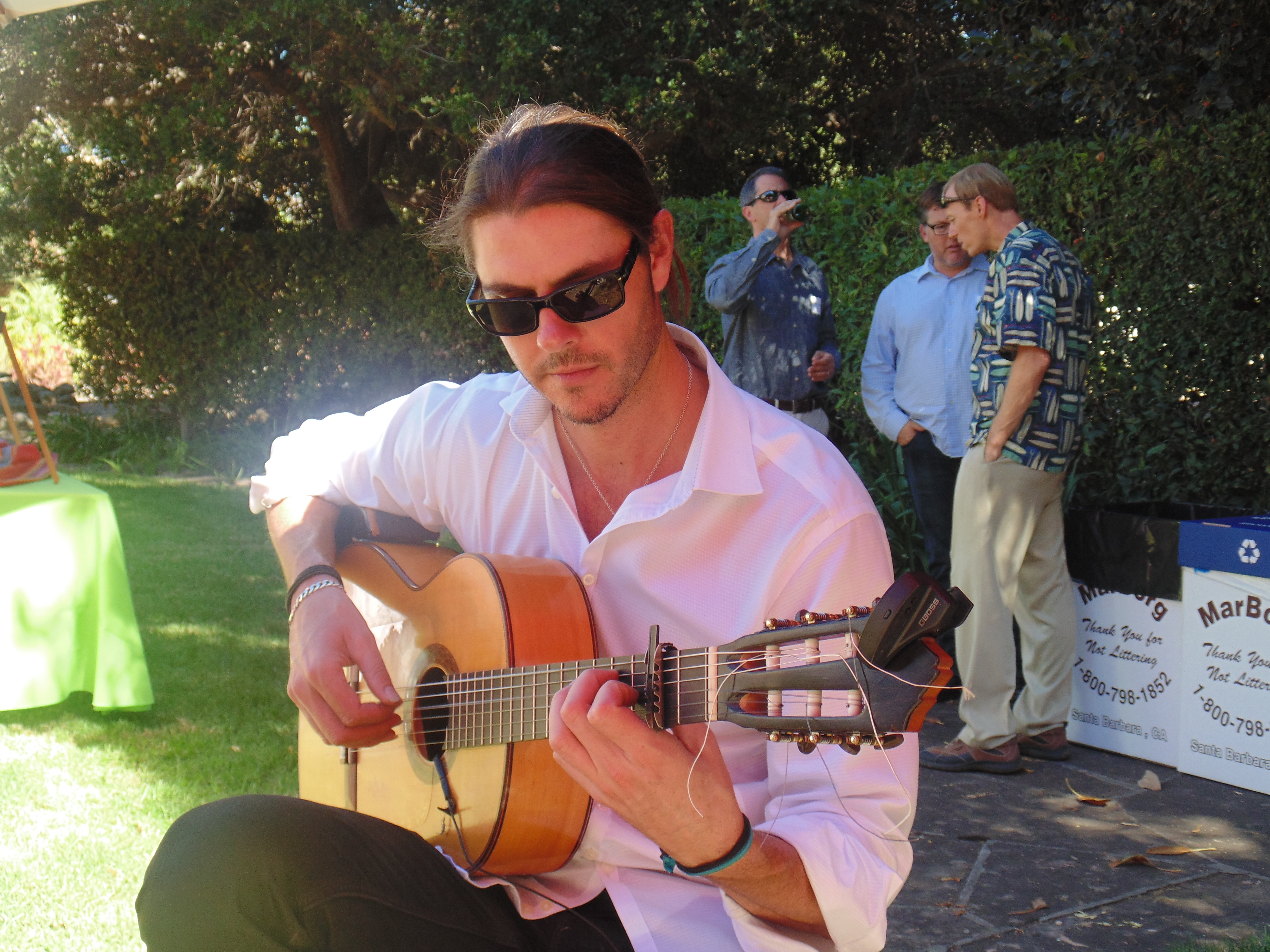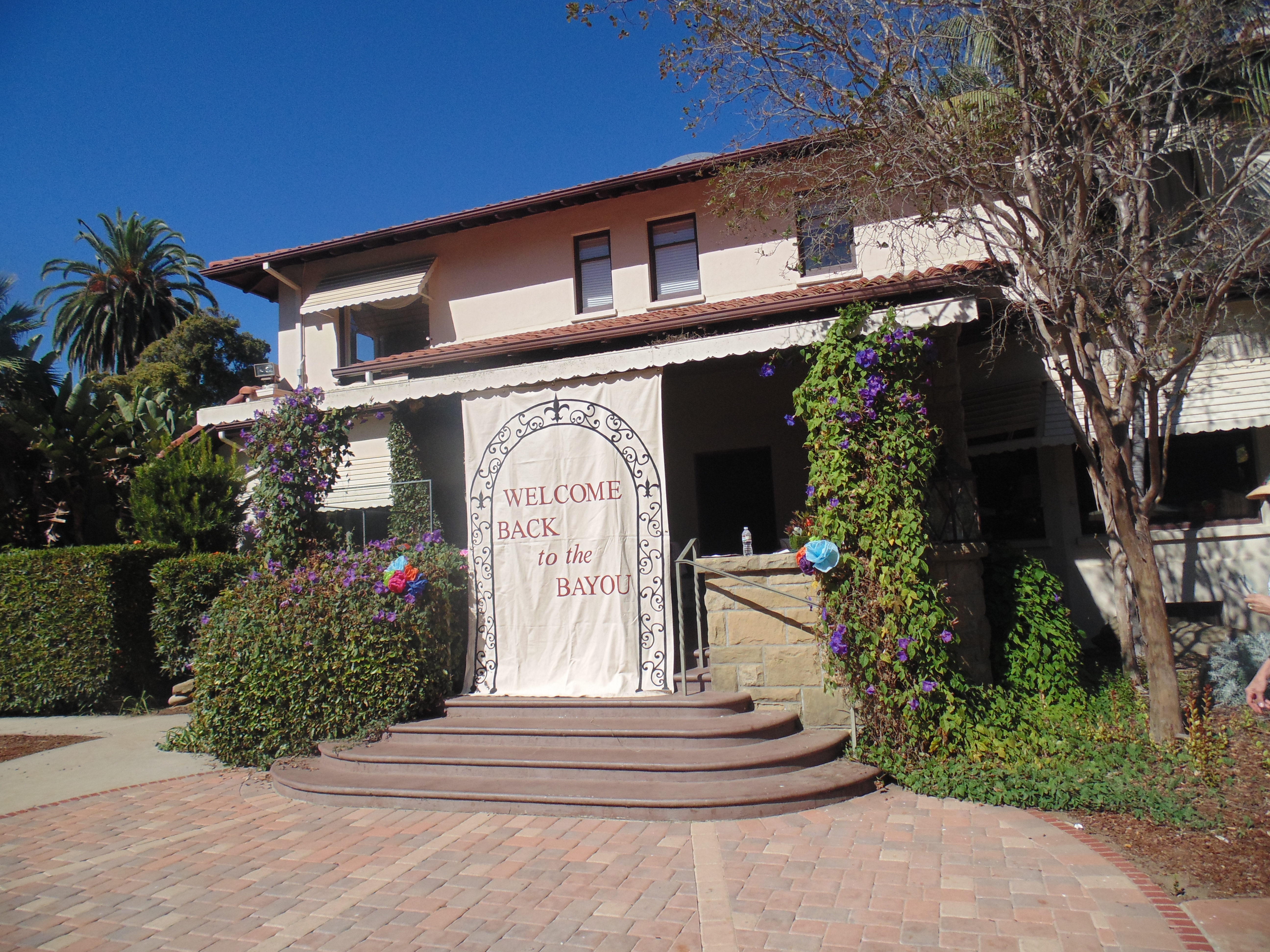HEALTH MINDED SANTA BARBARA RESCUE MISSION VIVA LA BAYOU! Leni Fe Bland Award Presented to Betty Rosness By Bonnie Carroll .JPG)
Award Recipient Betty Rosness & SBRM President Rolf Geyling Betty Rosness was presented the Leni Fe Bland Award at Viva La Bayou! , the 13th annual benefit for the Santa Barbara Rescue Mission on October 4th. Rosness moved to Santa Barbara from Wichita, Kansas in 1968, and opened her Rosness Advertising Associates. She has served 39 non—profits in Santa Barbara and Goleta, was Santa Barbara Woman of the Year, Goleta Woman of the Year, SB County Woman of the Year, Volunteer of the Year and Senior Citizen of the Year. .JPG) (1).jpg) Leni Fe Bland & Rolf Geyling SBRM Kathy Ireland Award Presenter Betty was a long-serving board member for the Santa Barbara Res cue Mission, including a tenure as board chair. Her dedication to the women of Bethel House was a personal tribute to her oldest daughter; Melody Johnson, who died of cancer in 1972. Today at age 90, Betty continues to be a committed partner to the work of recovery at the Mission. . .JPG) 
What is billed as the best silent auction in Santa Barbara attracted a huge crowd at  the historic Rancho Dos Pueblos, where guests attending the 13th Annual Viva La Bayou perused rows of valuable auction items, and signed up for a chance to win a vacation in the La Quinta Resort, while enjoying great music and Spanish Dancers. Victoria Sanchez, news anchor for KYTV 3, was a charming MC for the event, and Kathy Ireland, Santa Barbara local and long time supporter of SBRM gave a beautiful introduction to Betty who expressed her gratefulness to serve the Mission in the name of her late daughter. The delicious Viva Mexican dinner feast was prepared and presented by Lorraine Lim Catering. the historic Rancho Dos Pueblos, where guests attending the 13th Annual Viva La Bayou perused rows of valuable auction items, and signed up for a chance to win a vacation in the La Quinta Resort, while enjoying great music and Spanish Dancers. Victoria Sanchez, news anchor for KYTV 3, was a charming MC for the event, and Kathy Ireland, Santa Barbara local and long time supporter of SBRM gave a beautiful introduction to Betty who expressed her gratefulness to serve the Mission in the name of her late daughter. The delicious Viva Mexican dinner feast was prepared and presented by Lorraine Lim Catering. .JPG)  
Lorraine Lim Bites Great Guitarist Rancho Dos Pueblos Setting The event was started thirteen years ago to further the life-changing work of the SBRM. Betty Rosness was presented the Leni Fe Bland award for the important role she plays in our community. Since 1963 the Mission has been a place where the neediest in our community, those struggling with homelessness and addiction experience miracles through God's love, compassionate care and clinical expertise. All proceeds from the event benefit the homeless guest services and state-certified 12-month residential drug and alcohol treatment programs of the Santa Barbara Rescue Mission. For donations or information visit: www.sbrm.org. _________________________________________ William Sansum Diabetes Center and JDRF Present "The Emotional Side of Type 1 Diabetes" with expert William Polonsky Hosted at CenCal Health, the event will discuss key strategies for managing type 1 diabetes effectively |
William Sansum Diabetes Center and JDRF are sponsoring a OneTalk with William Polonsky, PhD, CDE on Tuesday, Oct. 21 to discuss "The Emotional Side of Type 1 Diabetes." Living with type 1 diabetes (T1D) not only presents physical challenges, but mindset challenges as well. To live well with T1D, acknowledging and addressing these emotional stresses is often the most important step a patient can take. Unfortunately, it is too easy for both T1Ders as well as doctors to neglect this "personal" side of the diabetes. Polonsky's presentation will cover the stresses of diabetes as well as the latest scientific research on these subjects. Most importantly, it will discuss some of the key strategies for overcoming these stresses and managing T1D more effectively. This event open to those with type 1 diabetes or parents of children with type 1 diabetes. Dr. Polonsky is President and Founder of the Behavioral Diabetes Institute, the world's first organization wholly dedicated to studying and addressing the unmet psychological needs of people with diabetes. He is also Associate Clinical Professor in Psychiatry at the University of California San Diego. Dr. Polonsky received his PhD in clinical psychology from Yale University and has served as Senior Psychologist at the Joslin Diabetes Center in Boston, faculty member at Harvard Medical School and Chairman of the National Certification Board for Diabetes Educators. Most recently, he received the American Diabetes Association's 2014 Richard R. Rubin Award for distinguished contributions to behavioral medicine and psychology. CenCal Health 4050 Calle Real Santa Barbara 93110 WHEN: Tuesday, Oct. 21, 2014 5:30-7 p.m. To attend,RSVP to Pamme Mickelson at pmickelson@sansum.org. ________________________________________ .JPG)
Dear EarthTalk: How is it that some food purveyors are contributing to the destruction of tropical rainforests by ditching unhealthy “trans fats?” -- Billy S., Salem, OR Most public health advocates applaud efforts by processed food producers, restaurants and fast food chains to get rid of so-called “trans fats”—partially hydrogenated oils added to foods to improve texture and extend shelf life but which can aggravate heart disease. In 2013 the U.S. Food & Drug Administration (FDA) proposed eliminating trans fats altogether, but it is unclear if and when such a change will take effect. In anticipation, many big trans fat buyers have switched to palm oil, much of which comes from former tropical rainforest lands cleared for agricultural production across Southeast Asia. “The concern is that a lot of companies will switch to palm oil in order to reduce trans fats without thinking more broadly about the health and environmental implications of that,” says Bill Barclay, Policy and Research Director at the non-profit Rainforest Action Network (RAN). Palm oil may be a good substitute for trans fats in that it stays solid at room temperature and is therefore useful as a food additive in things like snack bars. But it isn’t much healthier: A 2009 study by the federal Agricultural Research Service found that palm oil “would not be a good substitute for trans fats by the food industry” because consuming either type of fat results in similar spikes in artery-clogging LDL (“bad”) cholesterol and a protein (apolipoprotein B) that distributes it throughout the bloodstream. Meanwhile, the explosion in palm oil use over the past few decades for biofuels and as a food ingredient and additive has wreaked havoc on tropical rainforest ecosystems across Southeast Asia. Environmental leaders are concerned that even more demand for palm oil could push some endangered species—including orangutans, Sumatran tigers and pygmy elephants—over the brink. “They're losing critical habitat that threatens their survival and that's largely driven by palm oil expansion,” says RAN’s Barclay. Higher carbon emissions are another down side. According to the Union of Concerned Scientists (UCS), the tropical peat soils that predominate in Southeast Asia rainforests store huge amounts of carbon. Clearing and draining these fields to create palm oil plantations releases this carbon into the atmosphere. Green groups continue to work with palm oil producers and the governments that regulate them to promote more sustainable production and processing and toughen standards for conversion of land to agricultural use, but progress has been slow. A recent commitment by five of the world’s largest producers and traders of palm oil to stop clearing “critical forest areas” for one year during a study is a step in the right direction, but there’s no telling whether other producers will step up their own expansion efforts to fill the void, let alone what kind of ramped up production will happen when the study is complete. And while food scientists are working on other alternatives to trans fats that could be greener and healthier, none are as a cheap-to-produce and easy-to-process as palm oil, at least for applications requiring a food product to sit on store shelves at room temperature. The best thing we as consumers can do to keep our arteries and our consciences clear is to dial back our consumption of foods that include palm oil or any other trans fat alternatives. Indeed, there’s never been a better time to put down those packaged baked goods and processed snacks altogether. CONTACTS: FDA, www.fda.gov/Food/ucm292278.htm; RAN, www.ran.org; UCS, www.ucsusa.org. ____________________________________________________________________
|





